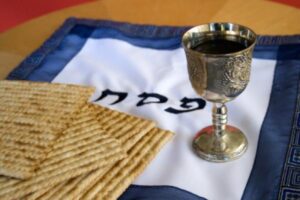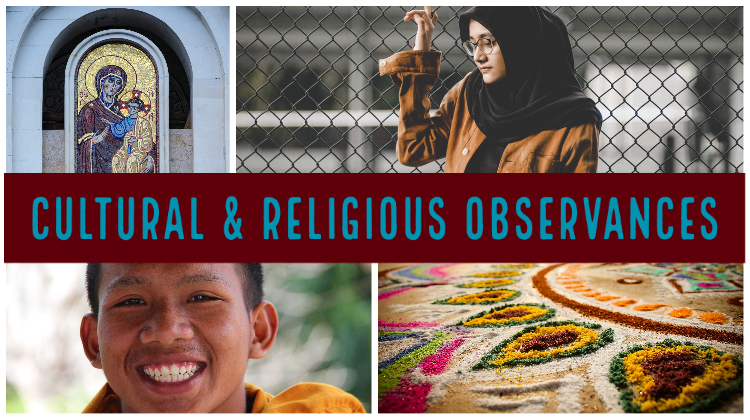Holi

Culture/religion: Hindu
Date: March 28
Holi, sometimes called “the festival of love” or “the festival of colors,” is one of the most revered and celebrated festivals in India. This is a day when people come together to forget all resentments and bad feelings toward others.
The ritual of Holi begins by lighting a bonfire on the day prior to Holi; a process symbolizing the triumph of good over bad. The main day of Holi celebrations, Dhuleti, people throw brightly colored powder on each other or spray each other with brightly colored water, adding the positivity of color to the celebration.
Sources:
Palm Sunday

Culture/religion: Christianity
Date: March 28
Palm Sunday, also known as Passion Sunday in some Christian churches, is the sixth Sunday of Lent and the final Sunday before Easter. It is a day when Christians celebrate the triumphal entry of Jesus Christ into Jerusalem the week before the Lord’s death and resurrection.
A tradition in many churches is to distribute palm branches to the congregation for the customary observances of a reading of the account of Christ’s entry into Jerusalem, the carrying and waving of palm branches in processional, the blessings of the palms, the singing of the traditional hymns and making small crosses with palm fronds.
Palm Sunday marks the beginning of Holy Week, a solemn week focusing on the final days of Jesus’ life.
Sources:
What is Palm Sunday?, Learn Religions
Passover

Culture/religion: Judaism
Date: March 28-April 4
Passover is an eight-day festival celebrated in early spring, from the 15th through the 22nd of the Hebrew month of Nissan. The celebration commemorates the emancipation of the Israelites from slavery in ancient Egypt.
In Hebrew, it is known as Pesach (“to pass over”) because God passed over the Jewish homes when killing the Egyptian firstborn on the very first Passover eve.
Passover occurs in two parts – the first two days and last two days which are full-fledged holidays. Holiday candles are lit at night, and holiday meals are enjoyed on both nights and days. On these days, it is not permitted to work, drive, write or use electric devices. The middle four days, called Chol Hamoed, are semi-festive “intermediate days” when most forms of work are permitted.
Passover begins at sundown on [date].
Alternate names: Pesach (PEH-sahkh, PAY-sahkh)
Sources:
What is Passover (Pesach)?, Chabad.org
Glossary of Jewish Terminology, Judaism 101, jewfaq.org

